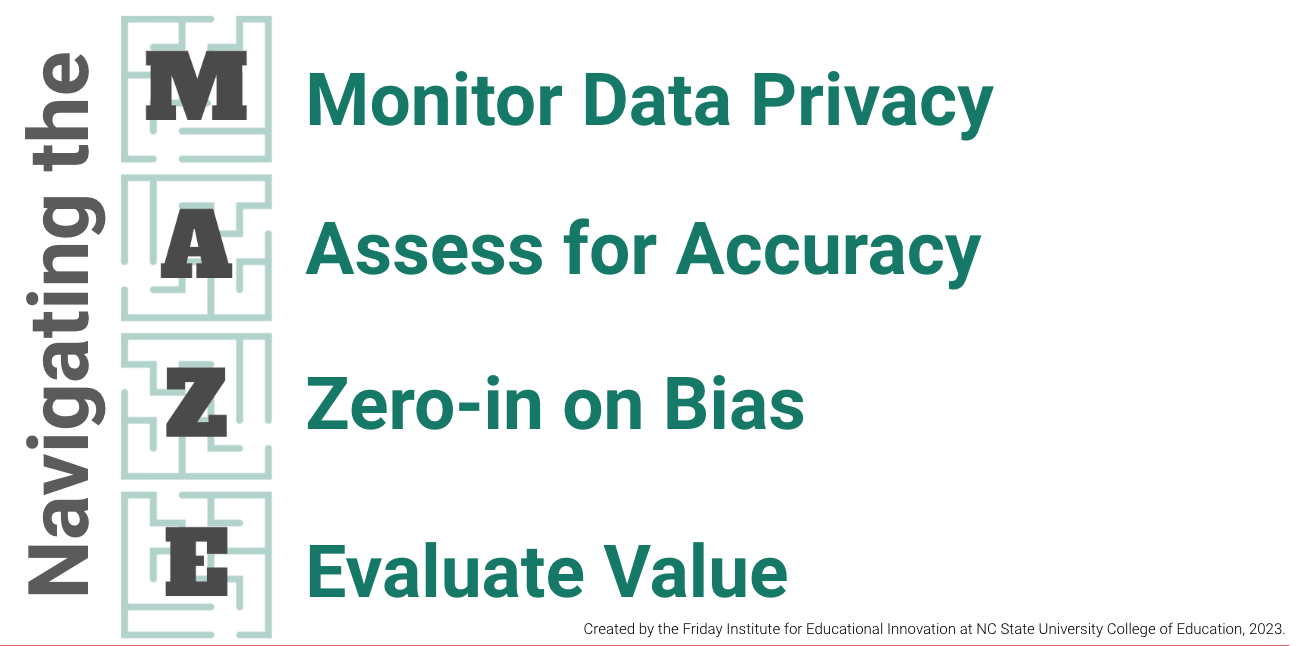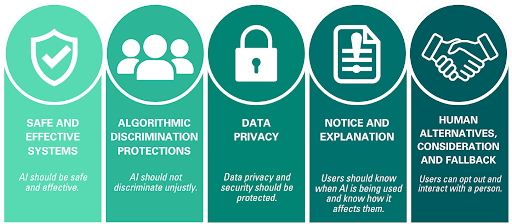Learning and Leading in the Age of Complexity
“Living organisms, our planet, and even the entire universe are getting ever more complex with time. ‘Complex’ doesn’t just mean ‘complicated’: it means that the parts of a system interact in ways that give rise to properties that can sometimes be quite surprising.” (World Economic Forum, 2022).
A global health pandemic. Racial strife. An economic recession. Contentious public debates. These are just a few of the complex societal issues that have made their way into today’s classrooms, creating difficult (and sometimes surprising) challenges for teachers and administrators alike. The Friday Institute is situated in Raleigh, North Carolina, where just last month we faced a mass shooting. While the tragedy took place in the evening outside of school, the shooter was a juvenile who killed his own brother—both of whom attended a nearby Wake County high school. The complexities of gun access and violence have surely spilled over into the hallways of that school and many others in the area.
How do we navigate learning and leading in such an age of complexity? Margaret Wheatley and Debbie Frieze would argue that we must transition from hero to host; that is, “it is time to face the truth of our situation—that we’re all in this together, that we all have a voice—and figure out how to mobilize the hearts and minds of everyone in our workplaces and communities.” But what would that look like exactly? Perhaps complexity theory itself can offer us some strategies for making our education system more sustainable, adaptive and innovative through its examination of complex adaptive systems (CAS).
- Education is interconnected with other CAS. Poverty, inadequate health care and lack of mental health support create complexities that require educators to meet needs that go beyond academics. Learning more about how to support students’ social-emotional learning can reap huge benefits.
- Schools benefit from diversity. Every child has his or her own strengths and weaknesses. There is no one-size-fits-all approach that will ensure every student’s success. That is why it is important to understand learning differences and how diversity of thought can be fostered by a growth mindset.
- Our education system works better with distributed, rather than centralized, leadership. Educators face too many obstacles to work alone. Being in community and approaching common issues collaboratively can help to distribute leadership, thereby solving problems more efficiently and effectively.
- Relationships are key. It takes time to get to know students from different backgrounds and how to support their success, especially when they have been traditionally marginalized. Administrators can make a difference by leading with purpose and facilitating student agency.
- School success can be non-linear. Not all children learn at the same rate and what they learn may not always show up on standardized tests. That is why it is critical to revamp our assessment system so that teachers have more timely and in-depth information about their students.
The complexities are vast but the possibilities are endless when we work together to transform learning and leading. Indeed, the sum is greater than the parts.
 Dr. Melissa Rasberry, Director of the Professional Learning and Leading Collaborative, is an accomplished education professional with proven visionary leadership and strategic communication skills, honed through 22 years of experience in public K-16 classrooms and education nonprofits. Before joining the Friday Institute, Rasberry served as principal technical assistance consultant for education at the American Institutes for Research (AIR). In addition to her NSF work at AIR, Rasberry served as the community of practice manager for the U.S. Department of Education’s State Support Network, supporting over two dozen communities with hundreds of members from across the country. She also led online learning projects with The Wallace Foundation, the National Association of Elementary School Principals and the Council of Chief State School Officers. Rasberry’s passion for diversity, equity and inclusion (DEI) came through in her work as an employee resource group chair and member of the DEI council, in addition to her ongoing efforts to mentor junior team members and advocate for colleagues of color.
Dr. Melissa Rasberry, Director of the Professional Learning and Leading Collaborative, is an accomplished education professional with proven visionary leadership and strategic communication skills, honed through 22 years of experience in public K-16 classrooms and education nonprofits. Before joining the Friday Institute, Rasberry served as principal technical assistance consultant for education at the American Institutes for Research (AIR). In addition to her NSF work at AIR, Rasberry served as the community of practice manager for the U.S. Department of Education’s State Support Network, supporting over two dozen communities with hundreds of members from across the country. She also led online learning projects with The Wallace Foundation, the National Association of Elementary School Principals and the Council of Chief State School Officers. Rasberry’s passion for diversity, equity and inclusion (DEI) came through in her work as an employee resource group chair and member of the DEI council, in addition to her ongoing efforts to mentor junior team members and advocate for colleagues of color.
- Categories:


